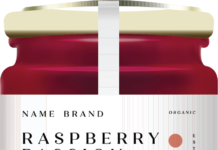
In India, the presence of counterfeits is specifically high in the FMCG packaged foods and pharmaceuticals sector. This is an issue that costs billions of rupees to the industry and leaves the government in severe losses. The counterfeiters either attempt to deceive the consumer into believing they are purchasing a legitimate item, or convince the consumer that they could deceive others with the imitation.

sensitive inks. Photo PSA
Speaking about the various solutions against counterfeit products, Gaurav Sathaye, director at United Speciality Inks says, “A significant amount of security is happening, but we cannot divulge much information, or else our purpose will be defeated.” Many solutions are available to curb the spread of illegal products in the market. However, one needs to zero in on a solution that is the most cost effective. The ill effects of counterfeit products can be seen from what happened with Maggi. Brand owners today are taking every measure to safeguard their brands, partly through the copyright and legal structure and partially by building overt and covert features in packaging. Even after catching the duplicator, managing the legal action is a difficult task. Thus, the features like traceability,
security and anti-tamper play a vital role in safeguarding the brands.”
As a specialty and security inks manufacturer, the company aids the brand owners as a doctor or consultant to assimilate the issues of a specific brand and provide an appropriate solution. A certain feature is developed only for the consumers, and some others are purposefully designed only for the companies for using the covert technologies. Sathaye showcased some brand labels with security ink feature but on the condition of keeping it a tight secret. He even discussed the thermochromic inks used in labels of beer that showcases individual marks or symbols till the bottle is chill and which disappear once there is a rise in temperature level. “The concept is very simple and functional. It is a thermochromic ink that changes color below a specific temperature to confirm that the beverage is being served at the suitable temperature,” he adds. Spilling the beans around
the value addition in the labels, Sathaye showed a few scented labels with thermochromic ink feature, developed and supplied to brands for different flavors.
With the rise in demand for security and specialty inks, the company expanded its production capacities by two manufacturing units close to Panvel-Raigad district of Maharashtra. One unit at Khalapur (on Mumbai Pune road) is spread around 25 acres and another at Taloja, which can produce more than 2,500 tons of offset ink and 3,000 tons of resin and coatings. Around 15% of the products manufactured at both the units are exported.
United Speciality Inks owns a state-of-the-art facility to develop any specialty product and security inks available in the market. “At one of the units, we develop the formulation of the raw material of the unique product, and in another unit, it is produced in bulk quantity. We have the technology in hand to produce the resin which is the heart of ink and UV coating solution,” shares Sathaye.
Every job at United Speciality Inks need not be security based; it can be a valuebased solution too. For speciality inks, the company has signed a confidentiality agreement (set the norms not to use the supplied ink for any other jobs apart from the assigned jobs and not allow the ink to be taken out of the company without any unauthorized access). However, even while dealing with such high-security environment, the pressure of fast turnaround and cost cutting remains intact.
Recently, the company developed forensic ink in security inks and soft touch coating solution in specialty inks division. “Forensic ink is a covert technology, and much information can`t be shared on it in public domain. Soft touch coatings and drip-off texture coatings are also help improve the ‘touch and feel’ of a packaging product, which is the objective of any packaging developer, marketer or brand owner,” he adds.
Given the emphasis on the current government’s ‘Make in India’ campaign bringing in economic development and much-anticipated growth, an effort needs to be made to strengthen laws and curb illicit trade practices for the industry to grow and thrive. What is necessary is an orchestrated strategy with participation from policy makers, industry players, civil society and organizations to work together and comprehensively address this complex challenge.










